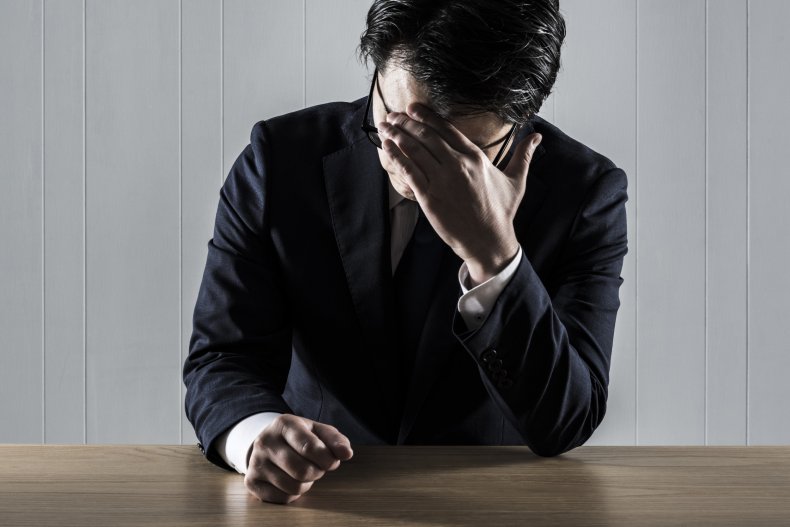New research suggests that people aged 30 to 59 are experiencing the greatest levels of anxiety over fears that they may catch the coronavirus.
Researchers from University College London (UCL) reported on Tuesday that a study they are conducting suggests overall stress levels have decreased since COVID-19 lockdown measures began, while depression has increased slightly. Worries over money and food have fallen over the last two weeks, leaving fears over catching the virus the biggest concern expressed by people enrolled in the study.
“Since the lockdown measures were brought in two weeks ago, we have seen a change in what most people are worrying about,” the study’s lead author Dr. Daisy Fancourt said in a statement. “The current highest stress factor appears to be worries about either catching COVID-19 or becoming seriously ill from it.”
“We also see there has been a slight increase in depression over the past two weeks, but fortunately a slight decrease in anxiety levels amongst the general public,” she added.
Older people showed the highest levels of “life satisfaction” in the study, with the over-60 group registering between 6 and 6.5 out of 10 on a scale of well-being. The demographic aged 18 to 24 were the least happy, reporting levels of around 4 to 4.5 out of 10. A similar survey taken in May 2019 showed an overall average of 7.5 out of 10.




kuppa_rock/Getty
A report released Thursday from the U.K.’s Office of National Statistics showed that four out of five adults in the country were very or somewhat worried about COVID-19, with a majority saying it was affecting their well-being, while almost half said they were experiencing high levels of anxiety.
Worries about catching the virus have decreased overall since the UCL study began three weeks earlier, the researchers said. An updated report issued Friday suggested that insomnia related to the pandemic had also decreased over time, with one in five people saying the health crisis had caused them “major stress,” compared to one in three only three weeks earlier.
“It is encouraging to see a decline in stress related to Covid-19 and anxiety in general. However, stress, anxiety and depression remain at high levels for people living alone, with a lower household income or with a diagnosed mental health condition,” Fancourt said.
The study is ongoing and still seeking additional enrollees, with people residing in the U.K. and U.S. eligible to participate.
A report released Wednesday from American pharmacy benefit management company Express Scripts suggested that the use of mental health medications in the U.S. had shot up significantly since the pandemic began, with an over 34 percent increase in people filling prescriptions for anti-anxiety drugs.
Newsweek reached out to UCL for comment but did not receive a response in time for publication.

